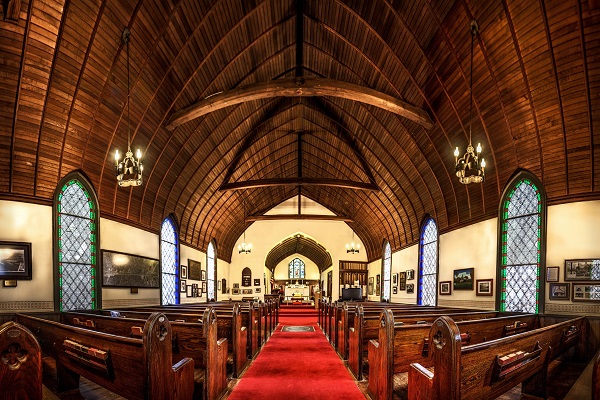
Secularism on the Rise in the UK
- By Alison Lesley --
- 12 Jul 2019 --

Only 1% identify as Church of England
Newly released data from the 36th annual British Social Attitudes (BSA) report has revealed that there are fewer people now than ever before who identify as Christian.[/tweetit] The data reveals the growth of secularism in the UK as non-religious people show new confidence in saying that they are atheist.
Secularism on the Rise in the UK[/tweetthis]
In the 18-24 age bracket, a mere 1 percent of people identify as Church of England. Looking at the most religious group, the over 75s reveals that only one in three people identify as the Church of England.
When looking at all age groups, the data reveals that the younger the person is, the less likely he/she is to call himself/herself Anglican. The BSA report says that this decline in religious belief is an important trend in postwar history.
In 1983, 31 percent of the public said that they didn’t belong to any religion. However, in 2018, 52 percent of the public said that they didn’t belong to any religion. In 1983, 66 percent of people identified as Christian. And again, in 2018, 38 percent of people associated with Christianity.
The report has said that the reason Britain is becoming more secular isn’t that adults are losing faith. The reason is that younger unaffiliated people are steadily replacing older people who identify as Christian. Another way of saying it is, it’s generational. The young adults of today are less religious than their parents.
While non-religious people succeed in transmitting their lack of faith to their children, there’s only a fifty-fifty chance of two religious parents passing on their faith.
One in ten people in 1998 said that they didn’t believe in God while one in four people have said that they didn’t believe in God in 2018.
People who say that they are very, or extremely non-religious has gone up by more than double from 14 percent to 33 percent in the last twenty years. Most people have revealed that they’re tolerant of other people’s religious beliefs.
A mere 3 percent of people have said that they wouldn’t accept a marriage which is mixed-faith in their family, while 82 percent have said that they would probably go through a mixed-faith marriage in their family.
Secularism increases rapidly in UK https://t.co/UHQBAH8654 pic.twitter.com/HEpMSd1MCH
— Jerry Coyne (@Evolutionistrue) July 12, 2019
It is interesting to see that trust in scientific institutions is increasing as faith in religion decreases. Thirty-six percent of people have faith in the education system, 34 percent in the legal system, 11 percent have in religious organizations, 8 percent in parliament, and 16 percent in business and industry.


















